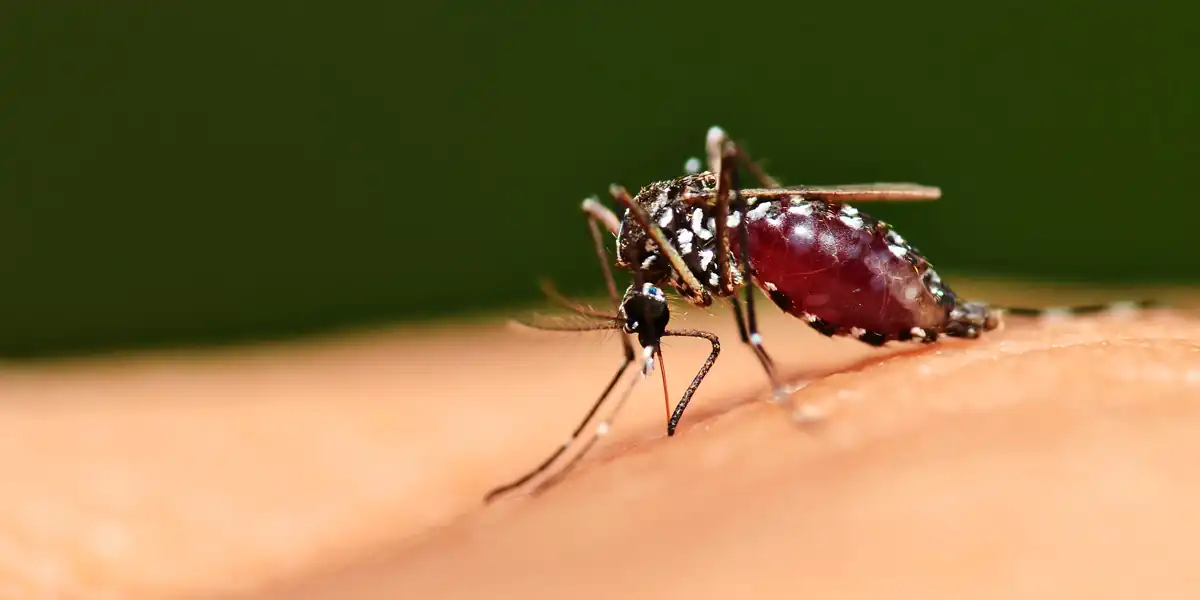Mosquitoes: Nature's Tiny But Mighty Vampires!
How Much Blood Does a Mosquito Really Take?
What if your perfect summer evening is ruined by that familiar high-pitched whine? We've all been there. Swatting at mosquitoes and scratching those itchy welts afterward. But have you ever wondered exactly how much blood these tiny pests actually take when they bite you?
It's a common curiosity. And the answer is both surprising and impressive.

The Mosquito's Microscopic Feast
That mosquito that just made you itch? She. And yes, only female mosquitoes drink blood. Just took about 5 microliters of your blood. That's 0.000005 liters. So little that without the itchy reaction, you wouldn't even notice.
But here's the truly surprising part. These insects can drink up to three times their body weight in a single feeding!
Imagine if you drank three times your body weight in liquid all at once. For most of us, that would be like chugging 150+ liters of water. Or about 400 cans of soda. In one sitting. Suddenly, that tiny mosquito seems a lot more impressive, right?
Could They Actually Drain You Dry?
It's a creepy thought that might cross your mind during camping trips. Could mosquitoes actually drain all your blood if there were enough of them?
Let's do some quick math.
- You have about 5 liters of blood in your body.
- Each mosquito takes about 5 microliters per full meal.
- That means it would take 1 million bites to completely drain you!
Even in places like the Arctic tundra, where mosquito swarms can get truly overwhelming during summer, the clouds contain tens of thousands. Not millions. So while they might make you miserable, they won't be turning you into a human raisin anytime soon.
How Do They Do It? The Engineering Marvel of Mosquito Digestion
How does something so tiny drink so much without bursting? The answer lies in some clever biology.
- Their abdomens have stretchy membranes that expand dramatically. Like tiny balloons. To hold the blood.
- They begin processing the blood while still feeding. Within minutes, they start excreting excess water to concentrate the proteins and iron needed for egg production. This rapid diuresis helps them stay agile and make room for more nutrient-rich blood.
- This efficient system allows them to convert your blood into energy and eggs with remarkable speed.
They're basically running a real-time filtering system that would make any engineer jealous.
Champions of the Blood-Drinking World
Mosquitoes aren't the only creatures that feed on blood. How do they compare?
Mosquitoes. Can drink up to 3 times their body weight.- Vampire bats. About 0.5 times their body weight.
- Leeches. Up to 5 times their body weight. Feeding for 20 to 40 minutes.
- Ticks. Some species can consume 100 to 200 times their unfed weight. With rare cases reaching 600 times. But over several days.
What makes mosquitoes special isn't the volume. But their speed and stealth. While a tick feeds for hours and a leech for minutes, mosquitoes often complete a meal in under 5 minutes. Sometimes feeding briefly on multiple spots and escaping before you notice.
Why All the Blood? It's for the Kids
So why do female mosquitoes need all this blood?
Unlike other blood-feeders that rely on blood for general nutrition, mosquitoes use blood specifically for reproduction. The proteins and iron in your blood provide the building blocks for their eggs.
One blood meal gives a female mosquito enough resources to lay 100 to 300 eggs. Most species need a new meal for each batch. Though some can produce multiple batches from a single feeding. Talk about efficiency!
The Physics of the Bite
Have you ever thought about how mosquitoes actually get your blood out? It's not as simple as using a straw.
The proboscis isn't a single tube. It's a complex tool made of six needle-like structures that work together to pierce your skin. Once a blood vessel is found, two pumps in the mosquito's head create negative pressure to draw blood upward.
High-speed imaging studies show this system is incredibly efficient. Depending on the species, mosquitoes can complete their meal in just 2 to 5 minutes. Extracting blood much faster than expected for their size.
This specialized system is a remarkable piece of natural engineering. And one scientists continue to study.
A Tiny Marvel (Even If We Don't Like Them)
The next time you feel that familiar itch, take a second to appreciate what just happened. A creature weighing less than 2.5 milligrams. About the weight of a single eyelash. Just performed an incredible feat of biological engineering.
In seconds, it located your blood vessels, deployed natural anticoagulants to keep your blood flowing, and extracted just what it needed with surgical precision.
We might not love the itchy reminder. But mosquitoes are one of nature's most remarkable examples of evolutionary adaptation. They've perfected the art of getting maximum nutrition with minimal detection. All in just a few minutes.
Not that this makes the itching any less annoying, of course.
Further Reading and References
Further Reading and References
How Much Blood Can a Mosquito Drink?
https://mosquitoenemy.com/2015/06/02/how-much-blood-can-a-mosquito-drink/
How Mosquitoes Hover After Tripling Their Bodyweight With Blood
https://aip.org/scilights/how-mosquitoes-hover-after-tripling-their-bodyweight-with-blood
